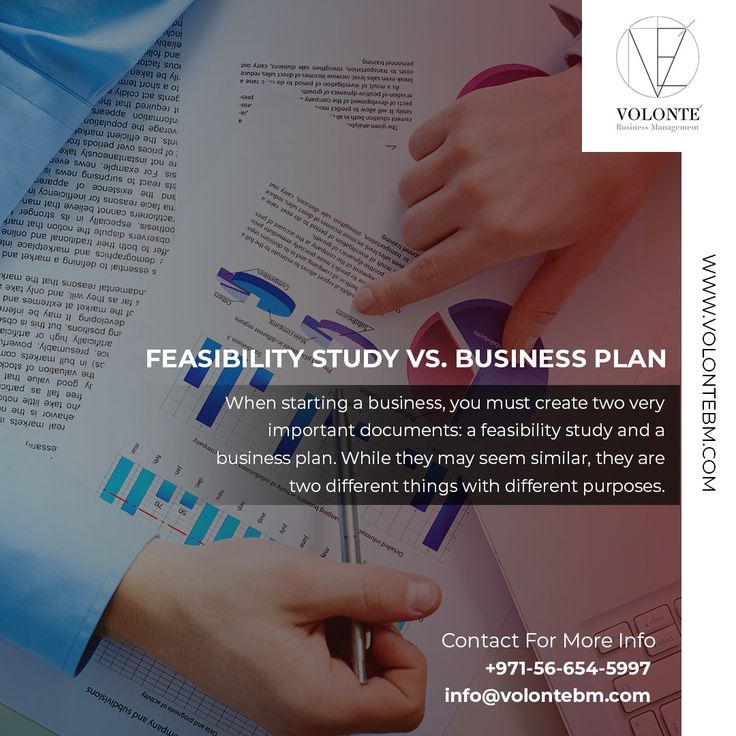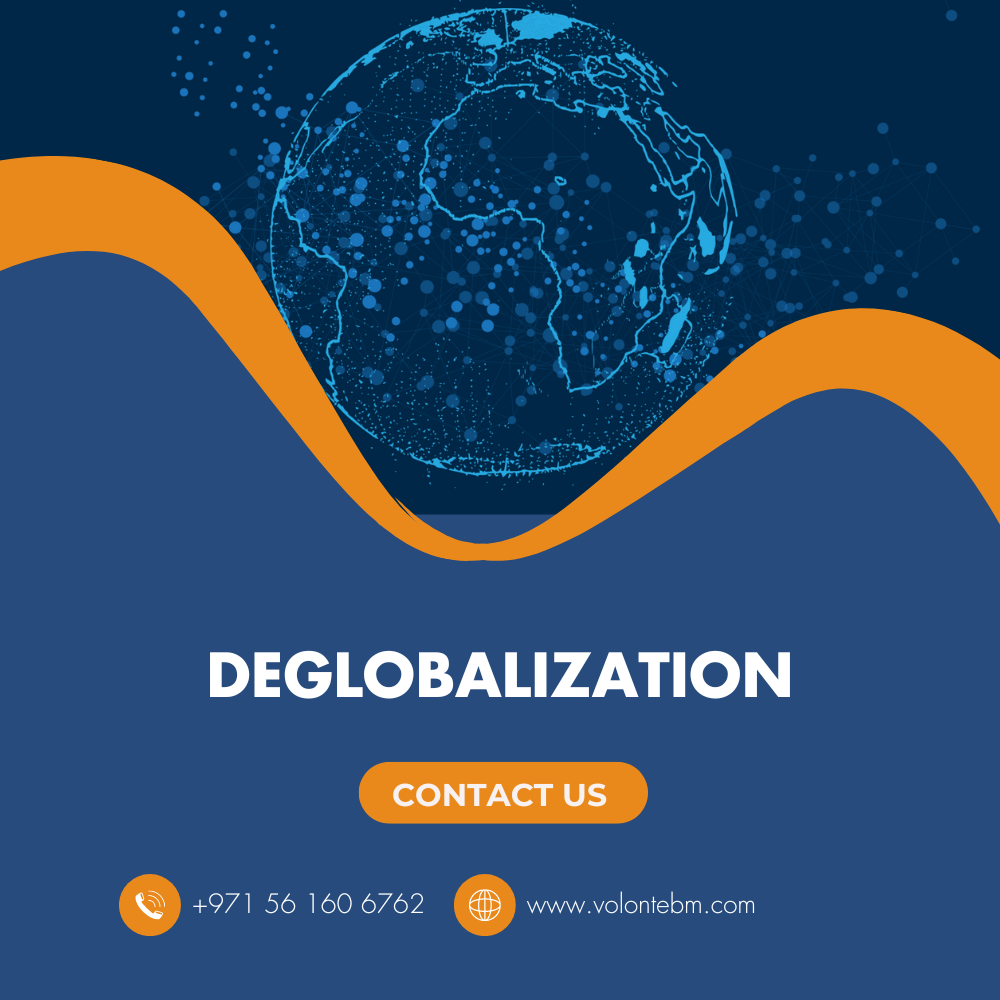Implementing result-oriented management: A guide to boosting team productivity

In today’s fast-paced business world, organizations are constantly under pressure to deliver results. With increasing competition and evolving market trends, it has become more important than ever for companies to continuously improve their productivity. One of the key factors that directly impacts an organization’s productivity is its management style. Result-oriented management is a management approach that focuses on achieving specific outcomes and objectives in a timely and efficient manner. This approach encourages managers to set realistic goals, identify the necessary resources, and implement effective strategies to achieve those goals. Implementing result-oriented management can have several benefits for an organization, including: Increased productivity Clear direction and focus Improved accountability Better resource allocation Encourages continuous improvement Increased employee engagement Enhanced decision-making Promotes a collaborative work culture Encourages innovation Improved customer satisfaction
Enhancing Business Success with Feasibility Studies in Dubai

Launching a new business venture or expanding an existing one in Dubai requires careful planning and analysis. One of the most critical steps in this process is conducting a feasibility study. This comprehensive assessment helps determine the viability of a project, considering various factors such as market demand, financial implications, and potential risks. In this blog, we will explore the significance of feasibility studies in Dubai and highlight how they contribute to effective Risk Management in the UAE. Additionally, we will discuss how Volonte BM can support your business with expert feasibility studies. Understanding Feasibility Studies What is a Feasibility Study? A feasibility study is an in-depth analysis conducted to evaluate the practicality and potential success of a proposed project or business venture. It examines multiple aspects, including market conditions, technical requirements, financial projections, and regulatory compliance. The goal is to provide a clear picture of the project’s viability, identifying potential challenges and opportunities. Key Components of a Feasibility Study Market Analysis: Evaluate the demand for the product or service, the target market, and the competitive landscape. Technical Feasibility: Assesses the technical requirements and capabilities needed to execute the project. Financial Analysis: Projects the financial performance, including costs, revenues, and profitability. Legal and Regulatory Review: Ensures compliance with local laws and regulations. Risk Assessment: Identifies potential risks and develops strategies for risk management in UAE. The Importance of Feasibility Studies in Dubai Informed Decision-Making Conducting a feasibility study provides businesses with critical information needed for informed decision-making. By thoroughly evaluating all aspects of a project, companies can make strategic choices that enhance their chances of success. Identifying Potential Risks One of the primary benefits of a feasibility study is its role in risk management in UAE. The study identifies potential risks associated with the project, allowing businesses to develop mitigation strategies. This proactive approach minimizes the likelihood of unexpected challenges and helps ensure long-term stability. Financial Planning Feasibility studies include detailed financial projections, which are essential for budgeting and financial planning. By understanding the expected costs and revenues, businesses can secure the necessary funding and manage their finances more effectively. Market Understanding In Dubai’s dynamic market, understanding customer needs and market conditions is crucial. A feasibility study provides valuable market insights, helping businesses tailor their products or services to meet market demand and gain a competitive edge. Regulatory Compliance Navigating Dubai’s regulatory environment can be complex. Feasibility studies ensure that projects comply with all relevant laws and regulations, avoiding legal issues and ensuring smooth implementation. Risk Management in UAE: A Critical Component of Feasibility Studies Identifying Risks Effective risk management in the UAE begins with identifying potential risks. These can include market risks, financial risks, operational risks, and regulatory risks. A feasibility study systematically evaluates these risks, providing a comprehensive risk profile for the project. Developing Mitigation Strategies Once risks are identified, the next step is to develop mitigation strategies. This involves creating plans to address potential challenges and reduce their impact. For example, market risks can be mitigated through diversified marketing strategies, while financial risks can be managed through careful budgeting and financial planning. Ensuring Long-Term Success Effective risk management is crucial for the long-term success of any business venture. By proactively addressing potential risks, businesses can navigate uncertainties and maintain stability, even in a dynamic market like Dubai. How Volonte BM Can Support Your Business with Feasibility Studies Expertise and Experience Volonte BM is a leading provider of feasibility studies in Dubai. With extensive experience across various industries, Volonte BM offers expert guidance tailored to the unique needs of each client. Their team of seasoned consultants brings a wealth of knowledge and insights to help businesses evaluate the viability of their projects. Comprehensive Approach Volonte BM takes a comprehensive approach to feasibility studies. They conduct thorough market analysis, financial projections, technical assessments, and risk evaluations. This holistic approach ensures that all aspects of the project are considered, providing a complete picture of its viability. Customized Solutions Every business is unique, and Volonte BM recognizes this. They work closely with clients to understand their specific challenges and opportunities, crafting customized feasibility studies that address their unique needs. This personalized approach ensures that strategies are relevant and effective. Data-Driven Insights Volonte BM leverages data-driven insights to inform their feasibility studies. By conducting detailed market analyses and utilizing advanced analytical tools, they provide clients with actionable insights that drive informed decision-making. This focus on data ensures that strategies are grounded in reality and geared towards success. Client-Centric Focus At Volonte BM, the client comes first. Their team is dedicated to building strong, collaborative relationships with clients, ensuring that their needs and goals are at the forefront of every project. This client-centric focus fosters trust and delivers results. Conducting feasibility studies is a critical step for businesses looking to succeed in Dubai’s competitive market. These studies provide valuable insights into the viability of projects, identify potential risks, and offer strategies for effective risk management in UAE. By leveraging expert guidance from Volonte BM, businesses can make informed decisions, mitigate risks, and achieve long-term success. If you’re ready to elevate your business strategy with expert feasibility studies, consider partnering with Volonte BM. Visit Volonte BM to learn more and get started on your path to success.
Explore Vibrant Marketing Management – Business Development Service in Dubai, United Arab Emirates

Dubai stands as a beacon of rapid growth and innovative business practices in the United Arab Emirates, making it an ideal environment for dynamic business development services. Companies looking to scale or enhance their operations in this bustling market often turn to Strategic Management Consulting UAE to navigate the complexities of regional and global expansion. These consultants provide expertise in a range of areas, from strategy formulation to market analysis, ensuring businesses are well-equipped to thrive in the competitive UAE market. Strategic Management Consulting: A Catalyst for Growth Strategic Management Consulting UAE plays a pivotal role in shaping the strategies of businesses in Dubai and beyond. These consultants are adept at identifying the unique challenges and opportunities within various industries, providing tailored advice that aligns with global best practices and local market realities. Strategy Consulting Dubai services include comprehensive business planning, strategic investment decisions, and innovation management, which are crucial for companies aiming to achieve long-term growth. The importance of detailed Market Analysis in UAE cannot be overstated. Understanding market dynamics, customer preferences, and competitive landscapes is vital for any business looking to secure a foothold or expand in the UAE. Strategic management consultants utilize advanced analytical tools and methodologies to deliver insights that help businesses make informed decisions and tailor their products and services to meet the specific needs of the local market. Business Management Solutions: Enhancing Operational Efficiency Efficient management is the backbone of any successful business. Business Management Solutions UAE focuses on optimizing operations, improving employee productivity, and reducing costs through innovative management practices and technologies. These solutions are designed to streamline processes, mitigate risks, and enhance overall efficiency, enabling businesses to focus on core growth activities. Business Transformation Experts UAE are instrumental in driving significant changes within organizations. Whether it’s through the adoption of new technologies, restructuring of business processes, or cultural transformation, these experts guide businesses through the transition to ensure minimal disruption and maximum benefit. Transforming operations to be more agile and adaptable is a critical step for companies looking to thrive in the fast-paced UAE market. Feasibility Studies for Business Success Before embarking on any major business venture, conducting Feasibility Studies for Business in UAE is crucial. These studies provide a thorough analysis of the economic, technical, legal, and scheduling aspects of a project, ensuring that it is viable and sustainable in the long run. Strategic management consultants offer their expertise to perform these studies, helping businesses avoid costly mistakes and focus on ventures that offer the highest return on investment. Feasibility Studies for Business in UAE not only assesses the practicality of projects but also provides a roadmap for successful implementation. They include risk assessment, budget forecasting, and market research, which are essential components of any business strategy. By leveraging such comprehensive studies, businesses can make strategic decisions that are based on robust data and thorough analysis. As Dubai continues to grow and attract international businesses, the demand for sophisticated Strategic Management Consulting UAE services is more critical than ever. Whether you are looking to refine your business strategy, enhance operational efficiencies, or explore new market opportunities, consulting experts in this field can provide the guidance and support needed to succeed. If your business is ready to take the next step towards transformation and growth in the UAE, visit Volonte BM, a leader in Business Transformation Experts UAE. Let us help you navigate the complexities of the market with strategic insights and tailored solutions that will propel your business forward. Connect with us today to start your journey towards business excellence in Dubai!
Grouping on Supply Chain into Political Interest Spheres: The US and China

The supply chain dynamics between the US and China have become increasingly shaped by political interests. The ongoing rivalry between these 2 superpowers has let to the formation of distinct supply chain spheres, influenced by their respective geopolitical strategies and economic policies. The US has been actively working to reduce its dependence on Chinese manufacturing and technology. This shift is driven by concerns over national security, intellectual property protection, and the desire to revitalize domestic manufacturing. Key strategies include: Reshoring and nearshoring American companies. Alliance and trade agreements with allied nations such as Japan, South Korea, and Europe. Investing in emerging technologies such as AI, semiconductor manufacturing, and green energy. China on the other hand is focusing on consolidating its role as the world’s manufacturing hub while expanding influence through initiatives. Key components of China’s strategy include: Belt and Road Initiative: expanding infrastructure tend trade networks across Asia, Africa, and Europe. Technological investing in 5G, AI, renewable energy. Regional trade agreements such as RCEP with neighboring countries. The bifurcation of global supply chains into US and China-led spheres has significant implications for global trade economic stability, and international relations. Companies worldwide must navigate this new landscape by diversifying supply resources and staying agile. This trend is likely to continue with both nations leveraging their economic and technological capabilities to expand their influence and secure their supply chain against future disruptions
Continued Deglobalization

The world is witnessing a significant shift from the interconnectedness that characterized the late 20th and 21st centuries to a more fragmental global landscape. This phenomenon, known as deglobalization, refers to the reduction of interdependence and integration between nations. Unlike globalization, which brought the world closer through trade, communication and cultural exchange, deglobalization emphasizes localism, national sovereignty, and self-reliance. To understand this trend, please read our article below and delve into its historical context and factors contributing to its rise. Factors Contributing to Deglobalization -Economic Factors Economic instability has played a crucial role in fueling deglobalization. The global financial crisis of 2008 exposed vulnerabilities in the world economic system, leading countries to reevaluate their dependence in international markets. Trade wars, fluctuating currency values, and uneven economic recoveries have further strained global economic ties. -Political Shifts The rise of populism and nationalism has dramatically reshaped the political landscape. Leaders advocating for protectionist policies and national sovereignty have gained traction, pushing back against multinational agreements and institutions. Bruit, the election of nationist leaders, and the increasing skepticism towards international organizations are all manifestations of this trend. -Technogical Advancements Technological advancements have paradoxically contributed to deglobalization. While technology has made global communication and commerce easier, it has also enabled countries to become more self-sufficient. Automation, AL, and advancements in manufacturing technology allow for more localized production, reducing reliance on international supply chains. -Social and Cultural Influences Social and cultural dynamics are also at play. There is a growing sentiment against globalization, fueled by the belief that it erodes local cultures and exacerbates inequality. Social media has amplified these voices, fostering a sense of cultural preservation and identity that runs counter to global integration. Economic Impacts -Trade Relations and Tariffs Deglobalization has led to the imposition of tariffs and trade barriers, disrupting international trade. Countries are increasingly favoring bilateral agreements over multilateral ones, leading to a more fragmented global trade system. -Impact on Global Supply Chains The disruption of global supply chains is one of the most visible effect of deglobalization. Companies are shifting towards regional or local supply chains to mitigate the risks associated with geopolitical tensions and trade restrictions. -Effects on Developing Economies Developing economies, which benefited significantly from globalization, face new challenges. Reduced foreign investment, lower demand for exports, and limited access to global markets hinder their economic growth and development. Political Landscape -Rise of Nationalism Nationalism is on the rise with governments prioritizing national interests over global cooperation. This shift has led to a decline in international agreements and collaborations, as countries seek to assert their independence and control. -Policy Changes and Protectionism Protectionist policies are becoming more common, with governments implementing measures to protect domestic industries from foreign competition. This includes tariffs, quotas, and subsidies aimed at boosting local production. -Global Power Shifts Deglobalization is also contributed to shifts in global power dynamics. As traditional powers like US and Europe turn inward, emerging economies such as China and India are asserting their influence on the global stage. Technological Changes -Automation and AI Advancements in automation and AI are reducing the need for human labor in many industries, allowing for more localized production. This shift decreases dependence on international labor markets and supply chains. -Cyber security Concerns Increased reliance on digital infrastructure has heightened cyber security concerns. Countries are investing in digital sovereignty, ensuring that their critical info and infrastructure are protected from foreign threats. -Digital Sovereignty It involves controlling and regulating the digital space within a country. This includes data localization laws, restrictions on foreign tech companies, and investments in domestic digital infrastructure. Future Predictions In the short term, deglobalization is expected to continue, driven by economic uncertainties, political shifts and technological changes. Trade tensions and geopolitical conflicts are likely to persist. In the long term, the world may see a more balanced approach, where global and local interests coexist. Countries will seek to maintain essential global ties while strengthening their domestic capabilities. Businesses must adapt their strategies to thrive in a deglobalized world. This includes diversifying supply chains, investing in local productions, and staying agile to respond to changing market conditions. Companies are now re-evaluating the benefits of globalization vs. localization. While globalization offers access to international markets, localization provides stability and resilience against global disruptions. Innovation remains crucial in a deglobalized world. Businesses are exploring new technologies and business models to stay competitive and meet the demand of local markets. Consumer behavior is shifting, with a preference for locally produced goods and services. This trend supports local economied and reduces environmental impact. Localized production can lead to more sustainable practices by reducing transportation emissions and promoting circular economies. Adaption Strategies Governments need to develop policies that balance national interests with global cooperation. This includes investing in domestic industries, enhancing cyber security, and participating in international agreements when beneficial. Businesses should focus on building resilient supply chains, investing in innovation and understanding local market dynamics. Flexibility and adaptability are key to navigating the challenges of deglobalization. Finally, individuals can adapt by acquiring new skills, supporting local businesses, and staying informed about global trends. Embracing change and being proactive in personal development will be essential in deglobalized world. FAQ What is deglobalization: Deglobalization is the process of reducing interdependence and integration between countries, focusing more on national sovereignty and localism. How does deglobalization affect the economy? It impacts global trade, supply chains, and investment flows, often leading to protectionist policies and a focus on domestic industries. How can businesses adapt to deglobalization? Businesses can adapt by diversifying supply chains, investing in local production, and staying agile to respond to changing market conditions.
Evaluating Your Business Idea in the UAE: Comprehensive Guide to Ensure Success

Starting a business in the UAE can be an exciting and potentially rewarding venture. However, the success of your business idea hinges on a thorough evaluation of its viability. This process involves careful planning, market analysis, and consulting with experts to ensure that your idea has the potential to thrive in the competitive UAE market. In this blog post, we will explore the essential steps to evaluate the viability of your business idea in the UAE and guide you through the process. Understanding the UAE Market The UAE is known for its dynamic and diverse economy, with sectors ranging from tourism and real estate to technology and finance. Understanding this market is crucial for the success of any business idea. Here are the key factors to consider: Economic Landscape: The UAE boasts a stable economy with a high GDP, making it an attractive destination for businesses. Regulatory Environment: Familiarize yourself with the legal requirements and business regulations in the UAE to ensure compliance. Consumer Behavior: Study the preferences and purchasing habits of your target market to tailor your offerings effectively. By gaining a comprehensive understanding of the UAE market, you can identify opportunities and potential challenges that may impact your business. Conducting Feasibility Studies Feasibility studies are a critical component of evaluating the viability of your business idea. These studies assess various aspects of your business to determine its practicality and potential for success. Engaging in Feasibility Studies for Business in UAE can provide valuable insights into: Market Demand: Analyze the demand for your product or service in the UAE market. Identify your target audience and assess their needs and preferences. Competitive Landscape: Conduct a Business Competitor Analysis in Dubai to understand the strengths and weaknesses of your competitors. Identify gaps in the market that your business can fill. Financial Projections: Evaluate the financial feasibility of your business by projecting costs, revenues, and profitability. This includes estimating startup costs, operating expenses, and potential revenue streams. A thorough feasibility study can help you make informed decisions and refine your business idea to increase its chances of success. Effective Business Planning A well-structured business plan is essential for guiding your business towards its goals. Business Planning in Dubai involves outlining your business strategy, setting objectives, and developing a roadmap for achieving them. Here’s what an effective business plan should include: Executive Summary: Provide a concise overview of your business idea, highlighting its unique selling points and potential benefits. Market Analysis: Include detailed insights from your market research, including target audience demographics, market size, and growth potential. Business Model: Describe your business model, including how you plan to generate revenue and deliver value to your customers. Marketing Strategy: Outline your marketing and sales strategies, including how you plan to attract and retain customers. Operational Plan: Detail your operational processes, including production, distribution, and logistics. Financial Plan: Provide comprehensive financial projections, including income statements, cash flow statements, and balance sheets. An effective business plan serves as a blueprint for your business, helping you stay focused and organized as you navigate the challenges of starting and growing your venture. Leveraging Expert Consultation Consulting with experts can provide valuable guidance and support as you evaluate your business idea. Engaging with Top Business Consultants in Dubai can offer several benefits: Strategic Insights: Benefit from the expertise of seasoned professionals who can provide strategic advice and identify potential pitfalls. Market Knowledge: Gain access to in-depth market knowledge and industry-specific insights that can enhance your business strategy. Network Connections: Leverage the consultants’ network to connect with potential partners, investors, and customers. Consulting with experts ensures that you have the necessary support and resources to make informed decisions and successfully launch your business. Performing a Competitor Analysis Understanding your competition is crucial for developing a competitive edge. Conducting a Business Competitor Analysis in Dubai involves: Identifying Competitors: Identify both direct and indirect competitors in your industry. Analyzing Strengths and Weaknesses: Evaluate the strengths and weaknesses of your competitors. This can help you identify areas where you can differentiate your business. Benchmarking Performance: Compare your business against competitors in terms of product quality, pricing, customer service, and market presence. Implementing Risk Management Risk management is an integral part of evaluating the viability of your business idea. Identifying potential risks and developing strategies to mitigate them is essential for long-term success. Key aspects of Risk Management in the UAE include: Identifying Risks: Identify potential risks that could impact your business, including financial, operational, and market risks. Assessing Impact: Evaluate the potential impact of each risk on your business operations and financial performance. Developing Mitigation Strategies: Develop strategies to mitigate identified risks, such as diversifying your product offerings, securing insurance, and establishing contingency plans. Conducting Market Research Market research is a vital step in evaluating the viability of your business idea. Engaging with Top Market Research Companies in the UAE can provide valuable data and insights to inform your business strategy. Key components of market research include: Customer Surveys: Gather feedback from potential customers to understand their needs, preferences, and willingness to pay for your product or service. Focus Groups: Conduct focus groups to gain in-depth insights into customer attitudes and behaviors. Industry Analysis: Analyze industry trends, market size, and growth potential to identify opportunities and threats. Evaluating the viability of your business idea in the UAE involves thorough research, planning, and consultation. By conducting feasibility studies, developing a comprehensive business plan, consulting with experts, performing competitor analysis, implementing risk management, and conducting market research, you can ensure that your business idea has the potential to succeed in the competitive UAE market. To learn more about evaluating the viability of your business idea and to access expert consultation and support, visit Volonte BM. Take the first step towards turning your business idea into a successful venture in the UAE.
Sustainability in Business Operations: Implementing Green Practices in Dubai

In an era where climate change and environmental sustainability are at the forefront of global discussions, businesses are increasingly called upon to adopt eco-friendly practices. In Dubai, a city known for its rapid development and innovative skyline, companies have a unique opportunity to integrate sustainability into their operations. By implementing green practices, businesses contribute to the planet’s health and experience a range of benefits including cost savings and improved brand reputation. This blog post explores how businesses in Dubai can adopt environmentally friendly practices and highlights the advantages of doing so, leveraging insights from Business Consulting Dubai and Strategic Management Consulting UAE. The Need for Sustainability in Dubai Dubai’s vision for economic expansion is robust, encompassing a future built on sustainability and innovation. As the city continues to grow, the impact of business operations on the environment becomes increasingly significant. This makes the integration of sustainable practices not just preferable but essential for long-term success. Businesses in Dubai can play a critical role in this transformation by rethinking their operational strategies to include green initiatives. How Businesses Can Implement Green Practices Energy Efficiency: Reducing energy consumption is one of the most straightforward ways for businesses to become more sustainable. This can be achieved through simple steps like switching to LED lighting, optimizing heating and ventilation systems, and investing in energy-efficient appliances. More complex solutions might include the installation of solar panels and smart building technologies that monitor and manage energy usage more effectively. Waste Management: Proper waste management is crucial in minimizing environmental impact. Businesses can implement recycling programs, opt for sustainable packaging, and manage electronic waste responsibly. Additionally, companies can explore ways to repurpose waste products, turning them into new materials or energy sources. Water Conservation: In a region like Dubai, where water resources are limited, conserving water is particularly important. Businesses can install low-flow faucets and toilets, repair leaks promptly, and use water management systems to reduce consumption. Reusing greywater for landscaping and other non-potable uses can also significantly cut down water usage. Sustainable Supply Chains: Integrating sustainability into the supply chain involves selecting suppliers who also commit to eco-friendly practices. This might mean sourcing raw materials locally to reduce transportation emissions, choosing suppliers that use renewable energy, or partnering with companies that prioritize waste reduction. Green Building and Office Spaces: For businesses looking to expand or renovate, green building certifications like LEED (Leadership in Energy and Environmental Design) offer a framework to create energy and resource-efficient buildings. Even simple changes, such as increasing natural light and using non-toxic, sustainable materials, can make a big difference. Benefits of Adopting Green Practices Cost Savings: Implementing energy-efficient solutions and waste-reduction strategies can lead to significant cost savings. Reduced utility bills and lower waste disposal costs are direct benefits that impact the bottom line positively. Enhanced Brand Image and Competitive Advantage: Consumers are increasingly aware of environmental issues and tend to favor businesses that are committed to sustainable practices. By adopting green initiatives, companies in Dubai can enhance their brand image, attract more customers, and gain a competitive edge in the market. Regulatory Compliance and Risk Management: With environmental regulations expected to tighten, adopting green practices early can help businesses stay ahead of the curve and avoid potential fines and sanctions. Furthermore, sustainability initiatives can mitigate risks associated with resource scarcity and climate change impacts. Attracting and Retaining Talent: A commitment to sustainability can also help attract and retain employees who are looking for responsible and forward-thinking employers. Companies that prioritize green practices report higher levels of employee satisfaction and loyalty. As Dubai continues to position itself as a global leader in innovation and sustainability, businesses in the city have both an opportunity and a responsibility to lead the charge in adopting green practices. The journey towards sustainability requires a strategic approach, and firms like those specializing in Business Consulting Dubai and Strategic Management Consulting UAE can provide the expertise needed to integrate these practices effectively. For businesses ready to embark on this transformative journey, the benefits are clear: from cost savings and enhanced brand reputation to compliance with future regulations and attracting top talent. If your business is looking to make sustainability a cornerstone of its operations in Dubai, consider reaching out to a strategic management consultant to guide your path forward. To explore how strategic management consulting can help your business become more sustainable, visit Volonte Business Management. Let’s work together to build a greener, more sustainable future.
Leverage UAE Consumer Behavior for Business Success: Insights and Strategies
Navigating the business landscape in the United Arab Emirates (UAE) requires a keen understanding of its unique consumer behavior. This diverse and rapidly evolving market offers a wealth of opportunities for businesses that can effectively align their strategies with the needs and preferences of local consumers. In this blog, we will explore the critical aspects of UAE consumer behavior and how businesses can leverage Strategic Management Consulting UAE, Feasibility Studies for Business in UAE, and Market Analysis in UAE to achieve market success. By unpacking these insights, businesses can make informed decisions, optimize their operations, and secure a competitive edge in this vibrant market. The Pulse of the UAE Market: Understanding Consumer Behavior The UAE’s market is as diverse as its population, with consumers from various backgrounds, preferences, and spending habits. To successfully cater to this complex demographic, businesses must understand the cultural, economic, and social factors that drive consumer behavior in the region. Strategic Management Consulting UAE plays a pivotal role in this process, offering expert insights that help businesses navigate the market’s nuances and align their offerings with consumer expectations. Leveraging Feasibility Studies for Business in UAE Before diving into the UAE market, conducting comprehensive Feasibility Studies for Business in UAE is crucial. These studies provide a clear picture of the market landscape, including consumer needs, market gaps, and potential challenges. By understanding these factors, businesses can devise strategies that are not only feasible but also highly effective in capturing the attention and loyalty of UAE consumers. Mastering Market Analysis in UAE for Business Success A thorough Market Analysis in the UAE is indispensable for any business aiming to succeed in the region. This analysis sheds light on key consumer trends, spending patterns, and the competitive landscape. Armed with this knowledge, businesses can tailor their products, services, and marketing efforts to resonate with the UAE audience, ensuring their offerings meet the market’s current and future needs. Cultural Sensitivity and Consumer Engagement The UAE’s rich cultural tapestry requires businesses to approach consumer engagement with sensitivity and awareness. Understanding cultural nuances, values, and preferences is essential for creating marketing messages that resonate with consumers. Effective engagement strategies go beyond mere translation; they involve adapting content to reflect local customs, traditions, and lifestyles, thereby building stronger connections with the audience. Digital Transformation and E-Commerce Trends With one of the highest internet penetration rates globally, the UAE’s consumers are increasingly turning to digital platforms for their shopping needs. Businesses must embrace digital transformation, optimizing their online presence and e-commerce platforms to offer seamless, user-friendly shopping experiences. Integrating advanced technologies such as AI and VR can further enhance the consumer journey, offering personalized and immersive shopping experiences that set your business apart. Sustainability and Ethical Practices An emerging trend among UAE consumers is a growing emphasis on sustainability and ethical business practices. Modern consumers are more likely to support brands that demonstrate a commitment to environmental protection and social responsibility. Businesses that incorporate sustainable practices into their operations, product lines, and marketing strategies can not only appeal to this conscientious consumer base but also contribute to a more sustainable future. Crafting Your Path to Success in the UAE Market Understanding and adapting to UAE consumer behavior is not a one-time effort but an ongoing process that requires attention, innovation, and strategic planning. Leveraging Strategic Management Consulting UAE, conducting Feasibility Studies for Business in UAE, and thorough Market Analysis in UAE are essential steps in crafting a business strategy that is both effective and sustainable. By embracing cultural diversity, engaging with consumers on a meaningful level, and responding to evolving market trends, businesses can achieve lasting success in the UAE’s dynamic market. Embarking on this journey with a clear understanding of UAE consumer behavior, backed by strategic insights and in-depth market analysis, positions your business to tap into unexplored opportunities and navigate challenges with confidence. In the ever-evolving landscape of the UAE market, staying informed, adaptable, and consumer-focused is the key to unlocking potential and driving your business towards new horizons of success.
Business Planning in Dubai

Looking for Funding? Business Planning in Dubai is A Must The journey to securing funding is often marked by complexities, uncertainties, and intense competition. Investors and lenders are inundated with proposals and pitches, all vying for their attention and trust. In business planning in Dubai, a meticulously structured business plan serves as your guiding star. The key to unlocking doors that lead to the capital you need. Definition of a Business Plan A business plan is a comprehensive document crafted by a company to outline its objectives. Day-to-day operations, position within its industry, marketing goals, and financial forecasts. It serves as a valuable roadmap for managing the company. It also plays a crucial role in attracting investors and securing financing from financial institutions. Understanding the Significance of Business Plans A business plan is an essential prerequisite for any budding business before it embarks on its operations. Many banks and venture capital firms require a solid business plan. They often won’t consider any investment in a new venture without it. Proceeding with your business operations in UAE without a business plan is generally not advisable. Very few companies can survive without one. Creating and following a well-structured business plan offers many benefits. It allows you to carefully consider ideas before investing significant capital. Additionally, it helps you navigate potential obstacles on the road to success. A robust business plan should delineate all projected expenses and potential challenges associated with each decision made by the company. Business plans may vary in detail. However, they typically include key elements such as an executive summary. Additionally, a detailed description of operations, products, and services is provided. Financial forecasts and strategies for achieving the business’s goals are also included. While providing ample detail is crucial, brevity is equally important to maintain the reader’s engagement throughout the document. How to Draft a Business Plan A well-thought-out and well-crafted business plan can offer tremendous value to a company. While templates are available for creating business plans, it’s best to consult a business management solutions provider in the UAE. This helps avoid producing a generic plan. The plan should include an overview and, if possible, insights into the industry. It should also explain how the business plans to stand out from competitors. Start with the basic structure, which typically includes an executive summary, company overview, and market analysis. Also include a product or service description, marketing strategy, and financial projections. Lastly, add an appendix with supporting documents and data. Tailor each section to fit your business needs, and don’t feel bound to follow any specific template. Traditional business plans typically comprise some combination of the following sections, and may also include funding requests. However, aim to keep the core body of your plan within a 15-25 page range. Elements of a Business Plan The length of a business plan varies widely from one business to another. Consider creating a 15- to 25-page document for essential information. Reserve additional space for detailed elements like patent applications. These can be referenced in the main document and be included as appendices. Although business plans can be highly individualized, they often share common components. Here are some key elements commonly found in business plans: Executive Summary: Provides an overview of the company, including its mission statement, leadership, employees, operations, and location. Products and Services: Details the offerings, pricing, product lifespan, consumer benefits, production processes, patents, proprietary technology, and research and development. Market Analysis: Explores the industry landscape, competitive positioning, strengths and weaknesses, and consumer demand for the company’s products or services. Marketing Strategy: Explains how the company aims to attract and retain customers. It covers distribution channels, advertising campaigns, and media strategies. Financial Planning: For established businesses, this includes financial statements, balance sheets, and budgeting. New businesses outline targets, estimates, and potential investors. Budget: Outlines costs related to staffing, development, manufacturing, marketing, and other business-related expenses. The most effective business planning in Dubai ensures that the plans are distinct. They highlight the company’s uniqueness and potential for success. Instead of using generic templates, these plans are tailored specifically to the business. Types of Business Plans Business plans serve as crucial tools for setting objectives, maintaining focus, and attracting funding. They guide companies in their inception, management, and growth stages, and act as a magnet for lenders and investors. While there’s no one-size-fits-all approach to business plans, they generally fall into two categories: traditional and lean startup. The traditional business plan is more detailed, longer, and comprehensive. In contrast, the lean startup plan is shorter and focuses on key elements. It may require additional detail if requested by investors or lenders. Special Considerations in Business Planning in Dubai Financial Projections Top business consultants in Dubai ensure that a complete business plan includes financial projections. These are often called pro-forma financial statements. . These projections encompass a budget, financing needs, market analysis, and the company’s marketing strategy. Other Business Plan Considerations A business plan is designed to give owners a clear view of their objectives, goals, resources, and potential costs. It also highlights any drawbacks linked to specific business decisions. This plan helps owners refine their strategies before implementation. It also enables them to estimate the necessary financing to start their business. Business plan consultants in the UAE should emphasize any unique aspects of the business. This approach can attract financing opportunities if needed. As businesses evolve, their plans should evolve as well. An annual review allows entrepreneurs to update the plan based on achievements, setbacks, and new insights. This transforms the plan into a living document that grows with the business. Why Business Plans Fail? A company can still fail, even with a well-crafted business plan. This happens if the company strays from the plan or if the initial assumptions are incorrect. Strong leadership and sticking to the plan are key to success. Poor assumptions can result in cash flow issues and budget problems. Market changes and economic shifts can also affect the business. Flexibility within the business plan is important
3 Stages of Success in a Startup Journey

Starting a business can be tough. There are a lot of challenges and setbacks that can test your patience. Sometimes, things don’t go as planned and you might wonder if it’s worth it. But don’t worry, this is normal. It could be a result of limited planning or not understanding your targetaudience. One of the biggest challenges for a new business is finding the right product for the right market. It takes a lot of time and effort to create a product or service. If it doesn’t sell well, it can be discouraging. But don’t give up! These challenges will make you stronger and more experienced. Even if you find the perfect product for your market, there will still be challenges. Success means different things to different people. Starting a business is all about experiencing the ups and downs. This blog will help you understand the different success stages of a startup. Early stage success for startups In the early stages, success is all about getting customers and making money. You need to understand your business model and who your customers are. You also need a team that is flexible and innovative. Celebrating small victories can help motivate your team. Focus shifts to branding and growth Once you have found the right product for your market and moved passed market entry challenges, you can focus on growth and scaling your business. This is where branding becomes important. Your brand is what people think of when they hear your name. You can learn about your brand by talking to your customers. Customer Retention and beyond As your business grows, you need to make sure everyone on your team is on the same page. You need to communicate your goals and plans. This is important as your company starts to focus on increasing market share and targeting new markets with enhanced products and services. Customer retention, repeat purchasing and positive customer reviews of your product or service are all indicators of effective journey mapping and value creation which enables the most effective improvements to operations, products and services. Final Thoughts Remember, things will change as your business grows. You need to stay innovative and motivated. Starting a business is a journey, and it’s important to enjoy the ride. What has been your experience as an entrepreneur? Feel free to share them in the comments below. At Volonté Business Management, we believe that having your upfront market research, entry strategies and business plans ultimately gives entrepreneurs the advantage of realizing success earlier in their journey and avoids unnecessary losses in time, money and opportunity.
